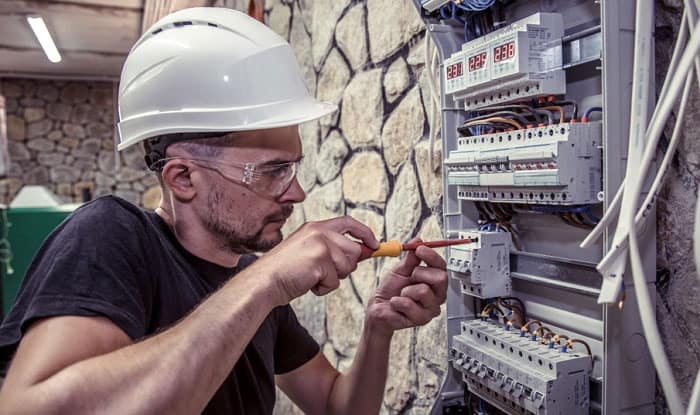Have you ever experienced seeing and smelling smoke coming out of your breaker panel? Have you ever seen a circuit breaker burn in an electrical system? Do you want to know what causes a circuit breaker to burn and how you can prevent it?
If you see a burnt breaker in your panel, it may be due to faulty installation. However, not every burnt circuit breaker is easy to find. A burned circuit breaker is a big problem that should be addressed as early as possible before it gets worse. Luckily, there are many things you can do to prevent this issue.
To help you with this problem, here are some factors that may cause a breaker to burn and what you can do for prevention and safety.
Table of Contents
Factors That May Cause a Breaker to Burn
1. Circuit Breaker Overheating
Overheating is the most common cause of circuit breaker burns. This occurs due to overloads, power surges, or arc-faults in your system. Any of these events will overheat your circuit suddenly, possibly causing the breaker to heat up and burn, thus resulting in a tripped circuit breaker.
2. Faulty Circuit Breaker
A faulty circuit breaker may also be responsible for your circuit breaker getting burned. Sometimes a defective circuit breaker won’t detect a fault if it happens. One example is when a short occurs in your line and the breaker doesn’t trip immediately, resulting in a burnt breaker.
3. Corrosion and Moisture
Corrosion and moisture can also cause burn in your circuit. This may occur if the breaker panel isn’t properly secured or there’s a loose connection in it. This could lead to moisture seeping in between the links, especially if you have high humidity in your home.
This problem is common for some plugin-type breakers, or when the panel is placed outside or in the basement.
4. Faulty Installation
Though this does not usually happen, a faulty installation may result in a burnt circuit breaker. It is when there is a loose terminal connection with your circuit breaker or busbars. Furthermore, an incompatible wire and breaker size can also lead to a burnt breaker.
How Do You Prevent a Circuit Breaker Burn?
Circuit breaker burn is a serious problem you need to prevent. It could range from a minor burn that a breaker replacement could fix to causing significant damage to life and property.
There are many things you can do to prevent this trouble:
- Regularly check your breaker panel, even if no surges occur in your home. If an undetected burn happens, you can see signs that it happened, like scorching, by just taking a quick look.
- If you see burn signs like scorching or a deformed circuit breaker casing, you should replace it before the problem worsens.
- Ensure each part of your house has a dedicated circuit to avoid overloading.
- Always follow the standard electrical codes and ensure that each connection to your breaker is tightly secured to prevent a current leak.
- Install your breaker panel inside your house, ensuring that it always remains accessible. Also, ensure proper ventilation, preventing moisture from building up inside the panel, thus leading to corrosion.
- Call a professional electrician to check your electrical system if a circuit breaker trips for no apparent reason, especially if it happens frequently. Simply resetting the breaker may not correct the issue.
- Use a surge protector to block electrical surges that can come from the grid. While using a surge protector doesn’t mean that your circuit will be unaffected by any surge, it would at least reduce the potential of damage due to a sudden high current or lighting strikes.
Check out the top-rated whole house surge protectors to get some ideas of the trusted protectors you can find in the market. It’s a rundown of some of the best devices professionals use in their projects.
Conclusion
Knowing what causes a circuit breaker to burn will give you an idea of how you can prevent it. Furthermore, using a surge protector will also give you peace of mind, knowing that your house is safe from sudden surges.
Did this article help you protect your house better? Have you ever experienced a circuit breaker burn in your home? What did you do to fix it? Share it in the comments below!

I am Edwin Jones, in charge of designing content for Galvinpower. I aspire to use my experiences in marketing to create reliable and necessary information to help our readers. It has been fun to work with Andrew and apply his incredible knowledge to our content.



